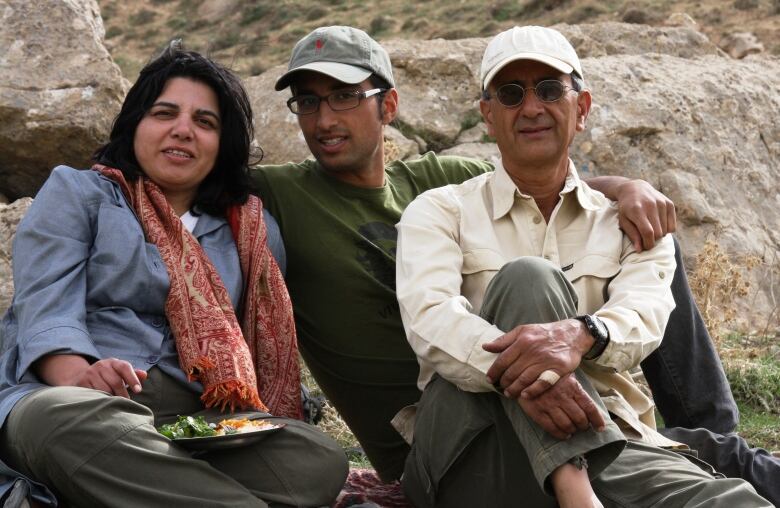Iranian-Canadian's death in Iran prison 'highly questionable,' prompts calls for Canada to act
'It is impossible for me to even consider the possibility of him contemplating suicide,' says friend

The death of an Iranian-Canadian academic is casting doubt on Tehran's claim that the 63-year-old took his life in prison and points to a pattern of the country's judicial authorities targeting dual nationals, according to the head of a non-profit agency that promotes human rights in Iran.
Kavous Seyed-Emami, an environmental activist and professor of sociology at Tehran's Imam Sadiq University, was detained by Iranian authorities last month, according to Hadi Ghaemi, executive director of the New York-based Center for Human Rights in Iran.
Seyed-Emami's son, Raam Emami, posted on his Instagram account Saturday that authorities said his father had killed himself.
"The news of my father's passing is impossible to fathom," Raam wrote. "I still can't believe this."
'Both the accused and the investigator'
Seyed-Emami's friend, Ahmad Sadri, also finds the official line "very, very hard to believe."
"It is impossible for me to even consider the possibility of him contemplating suicide," he said, adding that Seyed-Emami was "physically and psychologically very well put together."

Seyed-Emami's family is now calling on Iran to allow an independent autopsy of his body.
"You cannot be both the accused and the investigator and expect people to believe your conclusion," a family member said in a statement released Sunday. The statement also said the Iranian government have conducted their own autopsy and have not yet informed the family of the results.
They aren't alone.
"The claim of a suicide is highly questionable," Ghaemi said in a telephone interview with The Canadian Press, while admitting he had "no idea" how the professor may have really died.
Pressures 'very extreme'
"I do know the interrogation tactics and psychological pressures are very extreme on the detainees — especially in the first few weeks," said Ghaemi.
"So given Kavous was 63 years old, I am very concerned."
Ghaemi said Seyed-Emami's detention is part of a two-year trend of Iranian authorities accusing prominent dual nationals of espionage, but he noted the charges are "rarely backed up by any evidence."
The case recalls that of Homa Hoodfar, a 65-year-old retired anthropology professor from Montreal, who was detained in Iran in for several months in 2016 and indicted on unknown charges.
In media interviews after her release, Hoodfar said she was threatened and psychologically tortured over dozens of interrogations.
Calls for Canada to act
Sadri is now urging the Canadian government to pressure Iran "to create clarity about this horrible tragedy."
"I think the Iran government is obligated to provide a detailed account of what really happened to him."
In an email to The Canadian Press, a spokesperson for Global Affairs Canada said the department is aware of reports of Seyed-Emami's death. Staff in Turkey are in contact with the family of a Canadian citizen.
- Iranian-Canadian academic's death in Iran prison a 'profound tragedy,' says Alberta prof
- CBC IN IRAN | 'Far from perfect': Documents describe hectic final days of Canadian Embassy in Tehran
Consular officials "are working to gather additional information and are providing assistance to the family of the Canadian citizen," a spokesperson told CBC News in a statement.
MP Omar Alghabra, who is Parliamentary secretary to the foreign affairs minister, tweeted Monday morning that "Canada is concerned about the circumstances around the death of Mr. Seyed-Emami. Our thoughts are with his family. Canada has asked Iranian authorities for answers."
Canada has no embassy in Iran. The two countries broke off diplomatic relations in 2012. Since then, Italy has represented Canada's interests in the country.
For now, Sadri says he will continue to mourn Seyed-Emami's death and remember his passion and love for the outdoors and hiking.
"He was a dear friend," said Sadri. "He dedicated his life to the protection of the environment."
The statement says the family, despite being banned from holding a funeral service or memorial service, has planned a service for Tuesday morning in the village of Amameh.
With files from The Canadian Press
